Our editors independently select these products. Making a purchase through our links may earn Well+Good a commission
How To Get Rid of Ants in Your Home for Good, According to an Entomologist
Ants making themselves at home in your house? An expert entomologist shares how to get rid of ants and prevent them from coming back.
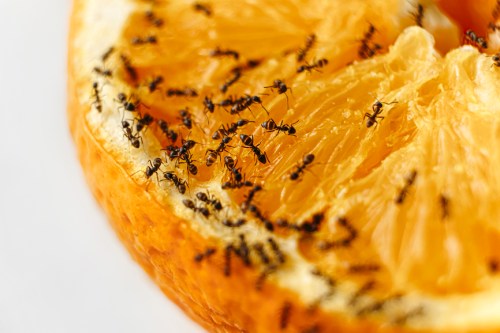
It’s a common—and often overlooked—occurrence to see an ant in your home. It’s even ordinary to see a few. However, when dozens—or hundreds—begin to swarm your door jambs, countertops, and floorboards, that’s when most people come to the conclusion that they have a serious problem at hand. The thing is, though, even just a few ants repeatedly popping up can be a sign that you need to take action against the pests—and fast. The best of efforts to get rid of ants can be futile if you don’t take the proper steps to prevent them from coming back.
Experts in This Article
chief entomologist and director of technical services at Mosquito Joe
While Google and YouTube have more than a few expert-backed suggestions, we figured it’d be most helpful to go straight to the source. So, without further ado, keep reading to learn how to get rid of ants for good, according to entomologist David Price.
What causes ant infestations?
Although there are over 700 ant species in the United States (a fact that will likely surprise many), Price, who is an associate certified entomologist with Mosquito Joe, a Neighborly company, says that only a few species caused infestations that could migrate to the interior of a home.
“Ants that are drawn to the home’s foundation are in search of water, sugar, or protein,” he explains. “It is dependent on environmental factors and availability to match the size of the colony. The environmental factors include change of seasons and going to higher ground during adverse weather.”
In short, if a migratory ant species makes its way into your home, it’s likely due to spills that haven’t been cleaned up, food that’s been left out, or particularly hot or rainy weather, which they’re trying to avoid.
How To Get Rid of Ants for Good
There are several things the homeowner can do to reduce ant populations invading their homes, says Price. Here’s where to start:
1. Direct moisture away from the foundation.
If ants are threatening to take your home hostage, turn your attention to your gutters. If they’re pouring water around the foundation of your home, it’s time to invest in downspouts to transition the run-off further away from your home (which will also help prevent erosion around your home’s foundation). The reason? Price says ants are attracted to moisture (despite wanting to steer clear of heavy rain), so by pushing the water further away from your home, the ants will be less likely to migrate into your interior space.
2. Keep mulch, leaf litter, and vegetation at least 10 to 12 inches away from the foundation.
Ants inhabit these things and, as such, Price says that you want to keep a barrier between their homes and yours to prevent a transfer.
3. Trim back any tree branches or shrubs that are near your home.
Many homes are lined with bushes and surrounded by trees. Beautiful as it may look, Price says it’s important to keep a buffer of plant-free space so that ants can’t use the branches as a bridge into the cracks in your windows and foundation, ultimately leading inside your home.
4. Move any piles of lumber, firewood, bricks, and stones away from the house.
All of these things attract moisture, and moisture attracts ants, says Price. Because of that, the more distance you can create, the better.
5. Clean up any food spills and crumbs as quickly as possible.
Ants are drawn to sugar and protein, so the last thing you want to do is leave out a free meal to draw them in. With that in mind, Price says to clean up any food spills and crumbs immediately to prevent infestations.
6. Rinse all food and drink containers thoroughly before placing them into trash or recycling bins.
Whether you keep your bins indoors or outdoors, you’ll want them to be clean so as to not serve as a steadfast beacon for wandering ants. And, if you want to go the extra mile to prevent an infestation, you can buy a Terro Garbage Guard Trash Can Insect Killer, which is an Amazon favorite for killing insect intruders and preventing others from popping up.

Terro T800 Garbage Guard Trash Can Insect Killer — $8.00
7. Don’t leave dirty dishes in the sink.
Who among us hasn’t left a few dishes in the sink overnight? Unfortunately, Price says it’s imperative to clean up to get rid of ants. “Remove food debris from your sink after washing dishes and cookware, and clean out strainers that collect food particles in sinks drains,” he says.
8. Store food in air-tight containers or keep it refrigerated.
As much as you may enjoy twist ties or clips, they simply don’t cut it when pests are looking to become menaces in your home. With that in mind, consider outfitting your kitchen with air-tight storage and leftover containers, like the OXO Good Grips 10-Piece POP Container Set and OXO Good Grips Prep & Go 20 Piece Set—two of my most-used kitchen sets.

OXO Good Grips 10-Piece POP Container Set — $113.00
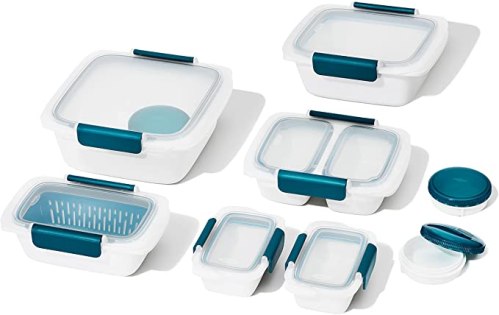
OXO Good Grips Prep & Go 20 Piece Set — $40.00
9. If possible, do not leave pet food out.
As convenient as it may seem to leave your cat or dog’s food bowl filled at all times so that they can continuously graze throughout the day, Price says that it’s not a great idea if ants are threatening your space. That said, you don’t have to compromise convenience for an ant-free home. Instead, consider investing in an automatic feeder that keeps food sealed away except when automatically dolled out. The WOPET Wi-Fi Enabled Smart Pet Feeder is a customer favorite.

WOPET Wi-Fi Enabled Smart Pet Feeder — $90.00
10. Seal up any gaps, cracks, or holes around windows, doors, and foundations.
If you notice that ants are coming into your home in one specific place, Price says to do a little DIY to close off their entrance into your home. (Psst: Gorilla Waterproof Caulk & Seal 100% Silicone Sealant is a top-rated choice that doesn’t cost an arm and a leg.)

Gorilla Waterproof Caulk & Seal 100% Silicone Sealant — $10.00
11. Consider using bait.
If you can’t figure out where the ants are coming from or if you simply can’t seem to get rid of them, Price suggests using a bair. “A liquid ant bait bought over the counter can be effective,” he says. Rather than putting it inside your home, however, he says to place it outside near the foundation of your home where the ants are getting in.
“Most folks place them inside and draw the ants inside making the infestation worse in many cases,” he shares. “There are several over-the-counter liquid spray products that can be applied around the foundation to eliminate what you see and repel future foragers.”
That said, he admits that it only works prior to infestation as a deterrent. “I recommend a spring application and then every two months through the summer and into the fall,” he adds. “They are still working during the winter months inside the colony and randomly foraging.”
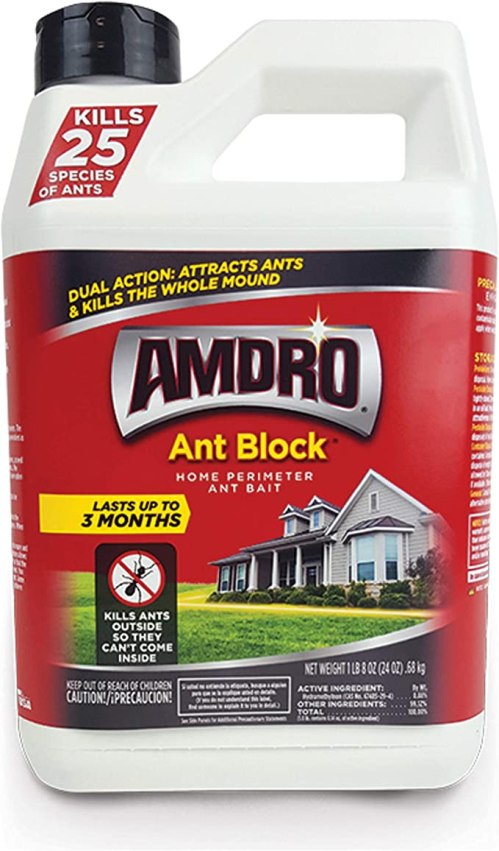
Amdro Ant Block Home Perimeter Ant Bait — $15.00
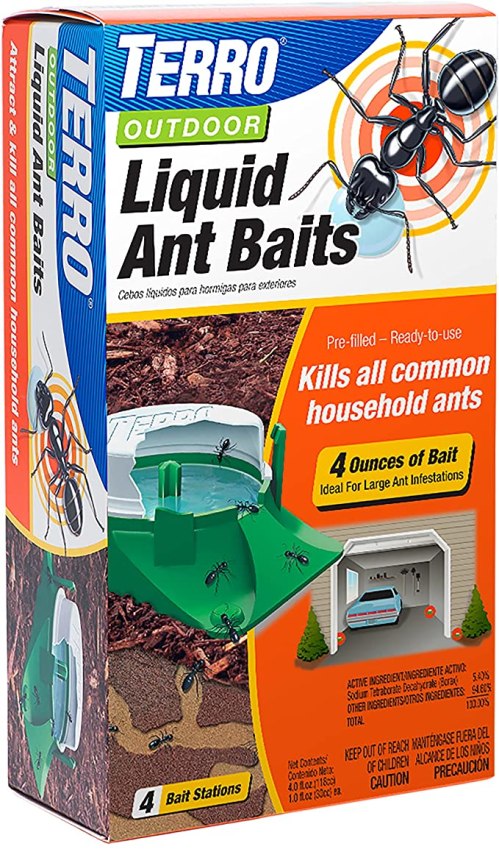
Terro T1804-6 Outdoor Liquid Ant Baits — $9.00
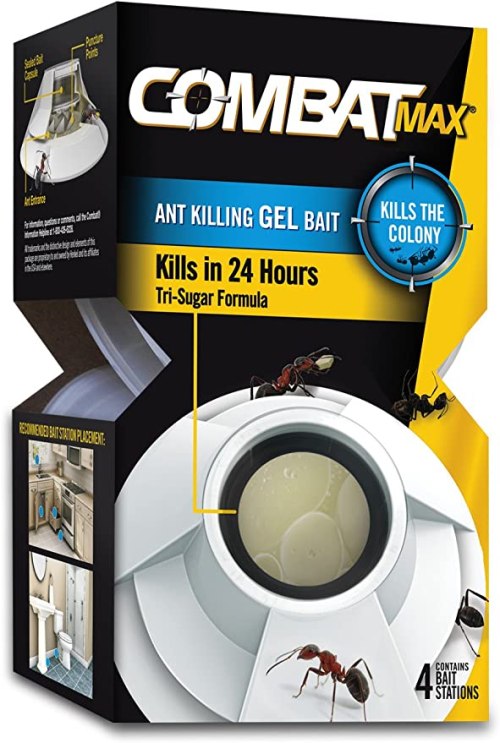
Combat Max Ant Killing Gel Bait Station — $7.00
What To Do if You Still Can’t Get Rid of Ants
If absolutely nothing seems to keep ants from entering your home, Price suggests enlisting the help of a professional. While ants don’t transfer diseases, the sheer numbers they can show up in can be alarming to say the least. Thankfully, expert pest controllers can help.
“It is time to call a professional when you are unsure of the type of ant or you can’t seem to get them under control,” Price says, noting that Mosquito Joe performs a Perimeter Pest Program to keep ants and other creepy crawlers out of the house. “There are ants that can do damage to your house or are an indicator that mold or moisture damage is present.”
Sign up for the Well+Good SHOP Newsletter
Get exclusive deals on wellness, beauty, fitness, and food products that have been hand-picked by our editors.
Got it, you've been added to our email list.







